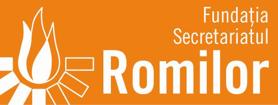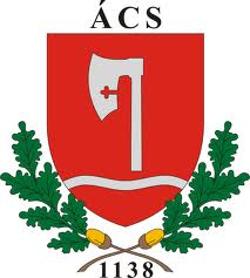Partner organisations[editar]
Selected partners are a combination of experienced NGO working for Roma inclusion and public administrations in charge of education issues in Spain, Romania, Bulgaria and Hungary. They are partners with very high technical expertise and public administrations with competences in education which have great potential to transfer the outcome of the project into their own network of schools and professionals at national level.
PROJECT LEADER: FUNDACIÓN SECRETARIADO GITANO (Spain)
The Fundación Secretariado Gitano (FSG) is a Spanish non-profit intercultural social organisation that provides services for the development of the Roma community in more than 87 cities in Spain and the European sphere (with one office in Bucharest, Romania). FSG started its activities in 1982 and currently has an average of 800 workers (Roma and non-Roma) and over 350 volunteers. Its annual budget in 2010 was 22.700.241€ (from European, national, regional and local administrations and private funding).
The mission of FSG is the comprehensive promotion of the Roma community based on respect for and support of their cultural identity. FSG’s main lines of actions therefore focus on both providing technical assistance and guidance to relevant actors (such as public administrations at local, regional, national and international level and NGOs), and to develop programmes and services on the grounds of the improvement of living standards and equal opportunities (such as programmes on employment, education, housing, health, youth and Roma migrants). Some of our most relevant programmes (for example the ACCEDER programme and our Educational Campaign When I grow up I want to be with the slogan "Roma with an education, Roma with a future") are acknowledged as Good Practices by both national and international institutions.
The educational advancement of the Roma community is one of FSG's priorities. Although the Roma community has taken significant education-related steps in recent years in some European countries, there is still a long road ahead. Early dropout, absenteeism and the presence of a high proportion of pupils with curricular phase lag continue to be the main challenges. This situation, which significantly restricts the chances of Roma students to obtain higher qualifications, consequently constraining their job opportunities, must be taken as a challenge by the rest of the educational community, public authorities, Roma families, the students themselves, the schools and other stakeholders. FSG has been developing programmes to promote the education of Roma children for more than 20 years. The Promociona programme, started in 2009 and funded by Structural Funds in Spain, aims to reduce early school leaving and foster the educational success of a large number of Roma students throughout Spain. This programme targets Roma students who are in the last phase of primary school or beginning the compulsory secondary stage of school; Promociona provides support and orientation not only to Roma students but also to other players participating in the educational process such as families, schools and other stakeholders.
For more information, please check http://www.gitanos.org/

- Fundación Secretariado Gitano (FSG)
ROMA EDUCATION FUND (Hungary, Romania and Switzerland)
Roma Education Fund Headquarters - Budapest, Hungary
The Roma Education Fund Headquarters office in Budapest is a Hungarian (non-profit) foundation, that was created in 2006 with the mission of contributing to closing the gap in education outcomes between Roma and non-Roma, through the design and implementation of policies and programs that support quality education for Roma in Europe.
More specifically, the REF aims to:
- To reduce the educational gap between Roma and non-Roma children by providing better access to quality education.
- To promote Roma inclusion in all aspects of the national education systems of countries participating in the Decade of Roma Inclusion, as well as others wishing to join in this effort.
- To combat segregation of Roma children in education systems.
The REF is active in 16 countries of Eastern, Central and South-Eastern Europe, running five major programs, inter alia (i) Policy Development and Capacity Building Program, which supports studies, technical assistance, strategy development, and learning activities that help create a framework for dialogue with governments and civil society on education reform and Roma inclusion; (ii) Communication and Cross Country Learning Program, which promotes the exchange of knowledge on education reforms and Roma inclusion and advocates for more inclusive education systems; (iii) REF Scholarship Program, which is currently, the largest tertiary scholarship program for Roma students in Europe; and, (iv) Project Support Program, which provides financing for projects and programs initiated and implemented by central and local governments, and civil society organizations in REF’s beneficiary countries.
The REF gives priority to (i) Combining interventions at the local level with a dialogue on policy reform at the national level; (ii) Creating synergies between the human rights agenda and the economic efficiency agenda; (iii) Stressing the centrality of Roma participation; and, (iv) Creating alliances and partnerships around clear directions.
Roma Education Fund Romania
Roma Education Fund Romania was established in 2009 within the REF Networks with the mission of contributing to closing the gap in education outcomes between Roma and non-Roma
Roma Education Fund Romania has two key strategic directions: 1) scaling up education interventions in Roma communities for enhancing access to and retention in quality education of Roma children at all levels of education (based on the expertise of the REF Networks) and 2) influencing educational public policies and strategies through technical assistance and advocacy. Currently, Roma Education Fund Romania manages 2 European Structural Fund financed projects as main applicant - School after School and Equal Opportunities in Education - and 2 ESF projects as implementing partner – Roma Youth Competitive on Labour Market and Roma Health Scholarship Project. The role of Roma Education Fund Romania will be to contribute with its own expertise in the area of parent involvement and parents’ mobilization strategies to the development of the methodological tool on working with Roma parents.
Roma Education Fund Switzerland
The Roma Education Fund Switzerland was funded in 2005, this is the fund that receives all of donor contribution.
For further information, please check http://www.romaeducationfund.org.

Ministry of Education, Culture and Sport- National Centre for Educational Innovation and Research (CNIIE) (Spain)
The National Centre for Educational Innovation and Research (CNIIE) is a ministerial body depending upon the General Directorate for Evaluation and Territorial Cooperation. It may be considered as a unit for generating knowledge on education, working for the Spanish education system through the Ministry of Education, Culture and Sport.
IFIIE’s specific mission is to mediate between the knowledge on education and the decision-making, especially from the State’s educational administration, but also from the educational administrations in the Autonomous Communities or from schools, as well as from supranational administrations.
Action Guidelines:
The following training, research and innovation actions are CNiiE’s priorities:
- The coordination of actions related to the teaching of Foreign Languages and programmes involving Foreign Languages and bilingual teaching.
- The elaboration and promotion of research, innovation, studies and reports on education and the elaboration and edition of publications together with materials related to education in accordance to the editorial programme of the department.
- Support and innovation programmes tending to the compensation of inequalities, inclusive education, attention to the underprivileged within the sphere of education or the attention to other areas of social interest.
- The administrative, economic and financial management of textbook programmes as for other specific aid for non-university studies not subjected to the general system that have as an objective the teachings regulated in the Organic Act on Education 2/2006, of the 3rd of May. The follow-up, control and evaluation of the compliance to the obligations required for the beneficiaries of the above mentioned programmes.
- The programming and management of actions and plans so as to promote equal opportunities in accessing education, the territorial cooperation plans with students, as the public announcement, adjudication and the awarding of the national study prizes.
- The design, planning and management of grants and study aids aimed at non-university students.
For further information, please check http://www.educacion.gob.es/cniie

Fundatia Secretariatul Romilor (FSR) (Romania)
The Fundatia Secretariatul Romilor (FSR) was created by the Fundación Secretariado Gitano (FSG-Spain), in 2009. The Board of Directors of FSG have decided to create a Romanian Foundation in order to have a direct involvement in terms of increasing the living conditions of the Romanian Roma. The FSR has the mission to promote the social inclusion of Roma people starting from recognizing and support their cultural identity, as well for other persons in situations of vulnerability and social exclusion.
The main objective the foundation is to develop programs in the following areas: education, employment, housing, health, women, youth, and in all the areas in which it can contribute to improving the living conditions of Roma communities.
FSR monitors and provides information about the policies on social inclusion implemented by governments and civil society.
In Romania, the FSR is a member of the NGOs Coalition for the Structural Funds and of the National Network for Rural Development.

Ministry of Education, Research, Youth and Sport (Romania)
The Romanian Ministry of Education, Research, Youth and Sport is a central governmental institution responsible for the national education at all levels (pre-primary, primary, secondary, and tertiary). Inside the MERYS there are departments responsible for the principal subjects related to education, such as: Department for Education and Lifelong Learning, Higher Education Department, Human Resources Department, Minority Education Department, etc.
In that context, the MERYS has a a main goal ensuring access, quality and equity in education in all schools and universities.
One of the main programmes implemented by MERYS for disadvantaged groups, including Roma, starting with September 2002, is PHARE programme Access to education for disadvantaged groups, with its 5 projects (2001, 2003, 2004, 2005 and 2006).
Having as main purpose to support the Ministry of Education, Research, Youth and Sport’s Strategy for the access to education for disadvantaged groups, all 5 PHARE projects “Access to education for disadvantaged groups” have been part of the education policy reform and aimed to create mechanisms to increase school participation and performance of children from disadvantaged groups (roma children/youngsters, children with special education needs and children from socio-economic disadvantaged communities) in the main stream by:
- improving the conditions of pre-school education disadvantaged groups;
- stimulating the success of children from disadvantaged groups in compulsory education (prevention of dropout) and improving school success rate;
- stimulating the enrolment in second chance programmes at the primary and secondary level.
This current project will be implemented by the Department for Education and Lifelong Learning, taking into consideration the results achieved in other projects regarding access to education, the appropriate qualification of staff and the fact that the project will be targeting pre-university institutions.
The nominated experts from MERYS will participate at the meetings proposed by the co-ordinator and at the drafting of the final methodological tool that incorporates elements of best practices from participating partners, with the aim to reduce early drop out rates among Roma children, especially in primary education.
For further information, please check http://www.edu.ro

Local government of Ács (Hungary)
Ács town is situated in the north-west part of Hungary and has 7200 inhabitant. The ratio of Roma is around 10%. The municipality of Acs besides the legally defined compulsory responsibilities pays special attention to the situation of Roma people and disadvantageous group. The town has a complex integration program launched in 2004, when the special elementary school designed for children with special need (SNI) was closed down. The students – mainly Roma children – were integrated into the mainstream school. By today, no separate school runs, but the three groups of children: Roma, disadvantaged and children with special need attend the same school.
As part of the town’s equal opportunity measures, a second chance type of project was launched in 2009 aiming the reintegration of secondary student who dropped out. The program had an employment component as well aiming to provide student with marketable professions. The project offered mentor activity intending to raise parental awareness and participation in the educational processes of Roma and disadvantaged families. The project has been selected as best practice to the CEDEFOP catalogue in 2010. The local government was partner in the implementation of the project, the mayor of the town, who is the former director of the town’s elementary school, was the project coordinator. He is an educational expert, who has extensively worked in the field of equal opportunities for the integration of Roma and disadvantage group.
The town has two outskirts which are in a poor infrastructural condition, with inhabitant (almost 100% Roma) living in poverty. Even though, the town has good economic opportunities, the inhabitants of these outskirts usually can only rely upon the public work, which the local government can offer. The low educational level, the marginalized situation, the bad housing problems all contribute to the reproduction of poverty.
The local government wanted to address this situation and started to design a complex programme for the two outskirts. It consists of health, employment, housing and social component and will be worked out until the end of 2011. It mainly concentrates in the outskirts, but also those Roma and disadvantaged families would be addressed who are living inside the town, but share the same problems. The project consists of social land programme, and it will allocate funds to restore housing conditions. Besides, it intends to deal with the social integration of these families addressing those groups as well, who are the most endangered.
For further information, please check http://www.acsvaros.hu

Bulgarian Ministry of Education, Youth and Science, Centre for Educational Integration of Children and Students from Ethnic Minorities (COIDUEM)
The Centre for Educational Integration of Children and Young People from the Minorities (COIDUEM) was established by the Council of Ministers’ Order No. 4 of 11th January 2005. The Center’s establishment itself had been preceded by the adoption of the Strategy for Educational Integration of Children and Young People from the Minorities, approved by the Minister of Education on 11th June 2004.
COIDUEM was established to support the implementation of the government policy regarding the educational needs of children and young people from ethnic minorities. This policy has as its framework the National Programme for the Development of School Education and Preschool Education and Training (2006-2015). The Programme sets equal access to quality education as a main goal of the system, expressly stating that equal access “does not mean equal care of all children, but differentiation of the care according to their different needs”. This means that for “those children who do not have an equal start, special care is necessary for their adequate participation in the educational process”.
The Strategy identifies the problems faced by the educational integration and classifies them as common problems or specific problems for each minority group. It sets three main strategic objectives that will be the focus of Center’s activities in the next three years.
- Strategic objective 1: Ensuring in normative documents and educational practice the equal access to quality education of children and young people from the ethnic minorities and their effective integration.
- Strategic objective 2: Preservation and development of the cultural identity of children and young people from ethnic minorities and transforming ethno-cultural diversity into a source of mutual awareness, respect and cooperation in a general education environment.
- Strategic objective 3: Creation of prerequisites for successful socialisation of children and young people from ethnic minorities and of favourable social and psychological climate that will be conducive to the Strategy implementation.
The activities of all projects funded by COIDUEM include the following target groups:
1. Children and young people of Roma origin, and the two procedures 33.2 and 33.7 are focused on: removing children and young people from segregated Roma ghettos and integrating them in the receiving schools and enhancing the quality of education of children and young people of Roma origin.
2. Working with the parents of children and young people of Roma origin.
3. Qualification of the teachers working with children and young people of Roma origin.
For further information please check http://coiduem.mon.bg/

NOT FORMAL PARTNER, COLLABORATING ENTITY WITH EXPERT
Municipality of Hódmezővásárhely/Hódmezővásárhely Megyei Jogú Város Önkormányzat
Hungary
For further information, please check http://www.hodmezovasarhely.hu
![This project has been funded with support from the European Commission. This publication [communication] reflects the views only of the author, and the Commission cannot be held responsible for any use which may be made of the information contained therein.](/upload/75/65/EU_flag_LLP_EN-01_278x278.jpg)
This project has been funded with support from the European Commission. This publication [communication] reflects the views only of the author, and the Commission cannot be held responsible for any use which may be made of the information contained therein.







